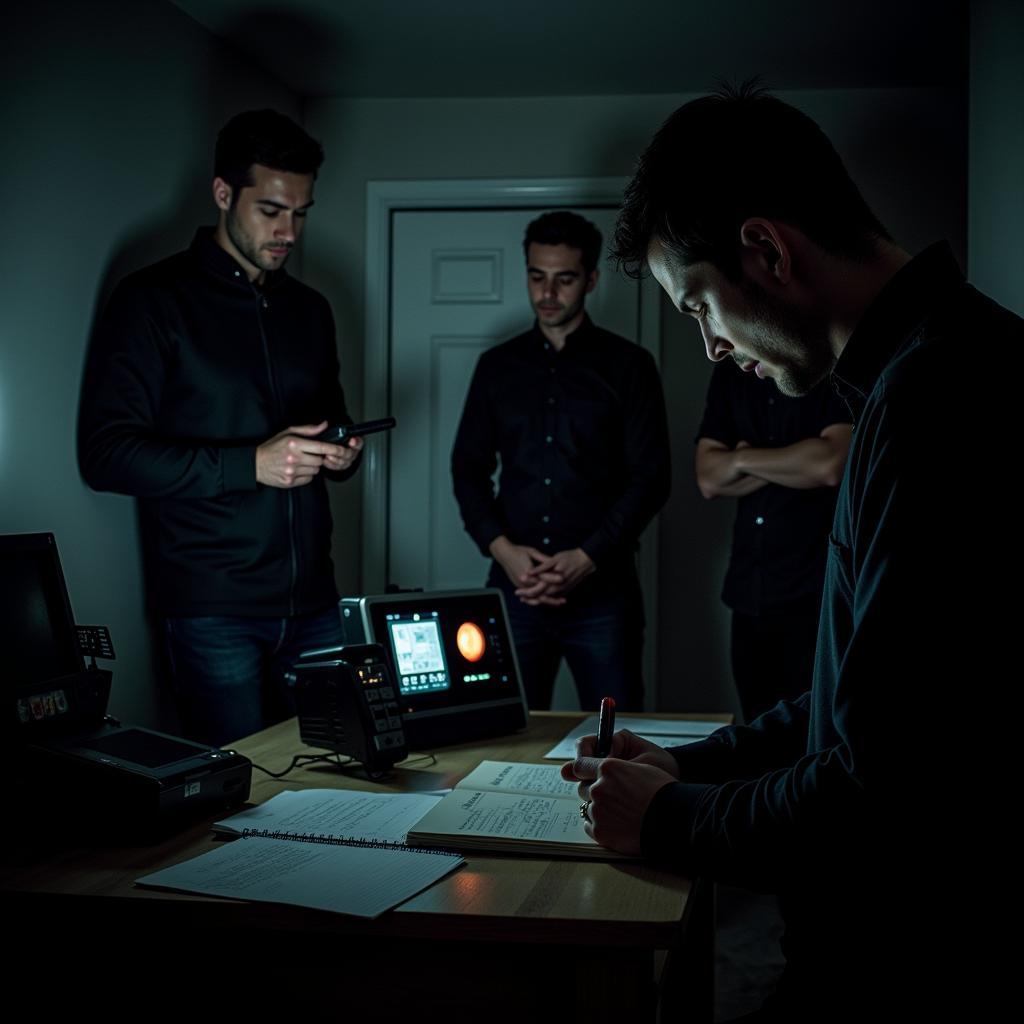Research, a cornerstone of human advancement, plays a vital role in expanding our knowledge and understanding of the world, both seen and unseen. Within the realm of paranormal investigation, the Characteristics Of Research become even more critical, guiding our exploration of unexplained phenomena with rigor and a discerning eye. characteristics of researchers helps us understand the inherent qualities of those undertaking these investigations.
Defining the Characteristics of Research
What exactly are the characteristics of research? This seemingly simple question opens a door to a complex and fascinating landscape of methodologies, principles, and practices. From the meticulous documentation of evidence in a haunted location to the analysis of ancient texts for clues about cryptids, effective paranormal research shares fundamental traits with scientific inquiry. These characteristics ensure that our investigations are systematic, valid, and contribute meaningfully to our understanding of the unknown.
Key Elements of Effective Research
Several core characteristics define robust research, whether you’re exploring the existence of ghosts or the intricacies of quantum physics. These include:
-
Systematic Approach: Research follows a structured process, from formulating a research question to drawing conclusions. This systematic approach ensures that investigations are organized, logical, and replicable. It involves carefully planned steps and methodologies, reducing the risk of bias and increasing the reliability of findings.
-
Objectivity: Maintaining objectivity is paramount in any research endeavor. This means approaching the subject matter without preconceived notions and letting the evidence guide the investigation. In paranormal research, this can be especially challenging due to the often subjective nature of experiences. However, striving for objectivity helps to minimize personal biases and strengthens the credibility of the research.
-
Verifiability: The findings of research must be verifiable, meaning that others should be able to replicate the study and arrive at similar conclusions. This requires detailed documentation of methods, data, and analysis. Within paranormal research, this might involve sharing recordings, photographs, and eyewitness accounts.
-
Empirical Evidence: Research relies on empirical evidence, meaning data collected through observation or experimentation. This could include EMF readings, temperature fluctuations, or even personal experiences, provided they are documented meticulously and analyzed critically.
 Systematic Paranormal Investigation
Systematic Paranormal Investigation
What Makes a Research Question Good?
Formulating a strong research question is the foundation of any successful investigation. A well-defined question focuses the research, guides the methodology, and ultimately shapes the conclusions. characteristics of a good research question provides valuable insights into this process.
-
Clarity and Specificity: A good research question is clear, concise, and avoids ambiguity. It should specify the variables being investigated and the relationship between them.
-
Measurability: The question should be phrased in a way that allows for the collection of measurable data. For example, instead of asking “Are there ghosts in this house?”, a better question might be “What environmental anomalies can be observed in this house that might suggest paranormal activity?”
Qualitative vs. Quantitative Research in Paranormal Investigations
Both qualitative research characteristics and characteristics of quantitative research play crucial roles in paranormal research. Qualitative research, such as interviews with witnesses, offers rich, descriptive data, while quantitative research focuses on numerical data and statistical analysis.
Dr. Evelyn Reed, a prominent parapsychologist, explains, “Qualitative research allows us to delve into the personal experiences and interpretations surrounding paranormal phenomena, providing valuable context and depth to our understanding.”
Professor Charles Blackwood, a renowned expert in anomalous phenomena, adds, “Quantitative data, such as EMF readings and temperature variations, provides a more objective measure of potentially paranormal activity, allowing for statistical analysis and identification of patterns.”
characteristics of qualitative research expands on the unique aspects of this approach.
 Qualitative vs. Quantitative Paranormal Research
Qualitative vs. Quantitative Paranormal Research
In conclusion, understanding the characteristics of research is essential for anyone seeking to explore the mysteries of the paranormal. By adhering to the principles of systematic investigation, objectivity, and reliance on empirical evidence, we can move closer to unraveling the enigmas that lie beyond our current understanding. Remember, rigorous research is the key to unlocking the secrets of the unknown. The characteristics of research help us to navigate this fascinating field with greater clarity and purpose.
FAQ
- What is the most important characteristic of research?
- How can I ensure objectivity in my paranormal investigations?
- What is the difference between qualitative and quantitative research in the paranormal field?
- Why is a systematic approach crucial for paranormal research?
- How can I make my paranormal research findings verifiable?
- What are some examples of empirical evidence in Paranormal Research?
- How can I formulate a good research question for a paranormal investigation?
For further assistance, please contact us at Phone: 0904826292, Email: research@gmail.com or visit our office at No. 31, Alley 142/7, P. Phú Viên, Bồ Đề, Long Biên, Hà Nội, Việt Nam. We have a 24/7 customer support team.